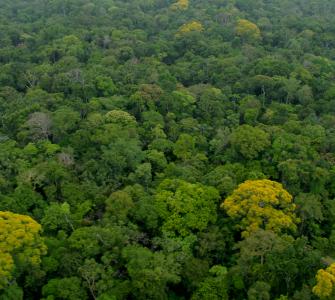CSF-Brazil, in partnership with the World Wildlife Fund (WWF-Brazil), conducted a feasibility study of economically promising forest restoration business models for private investment in southern Amazonas (AM) state, Brazil.
The New York Declaration on Forests, launched at the UN Climate Summit 2014, established a goal of restoring 350 million hectares of forest worldwide by 2030, to support climate change mitigation. However, mobilizing funding from the private sector to address the finance gap to achieve Forest Landscape Restoration (FLR) at scale has proven an enormous challenge.
In this context, CSF-Brazil conducted a feasibility analysis of three models for forest restoration in southern AM. Our goal was to identify economically viable models with the potential to attract private investment to achieve Brazil’s restoration goals. This analysis provides guidance for restoration financing, including models that have the potential to scale to the national level.
The feasibility study provides:
1) an economic assessment of three restoration models based on agroforestry : (1) Guaraná; (2) Coffee, cocoa and guaraná; (3) Coffee, cocoa, guaraná, açaí and banana.
The properties visited had restoration areas ranging from 1 to 5.4 hectares. We estimated the costs, productivity, and income of forest restoration interventions. The average investment required was US$3,290 per hectare, including fence installation and technical assistance for local landowners. Our analysis results show that, with the right investments and technical assistance, forest restoration can be a profitable activity in southern AM.
2) Recommendations for attracting investments in forest restoration, including comments on issues such as government regulation, enforcement and capacity, subsidies, and related legislation on environmental issues.
3) An analysis of the obstacles limiting the development of FLR in the region.
4) A presentation of a convincing business case(s) for investors.
Please, click here to download our publication and here for more information on our field trip to southern AM.
Photo: Forests in the Amazon are home to enormous biological diversity and have vast carbon sequestration potential.
Photo credit: The Field Museum.

